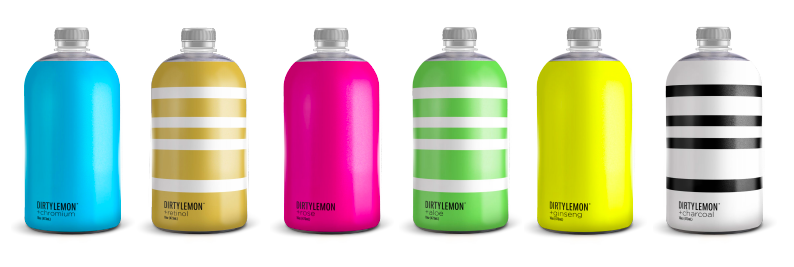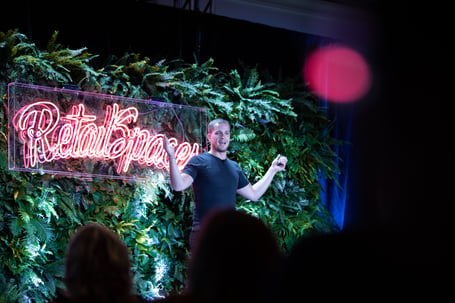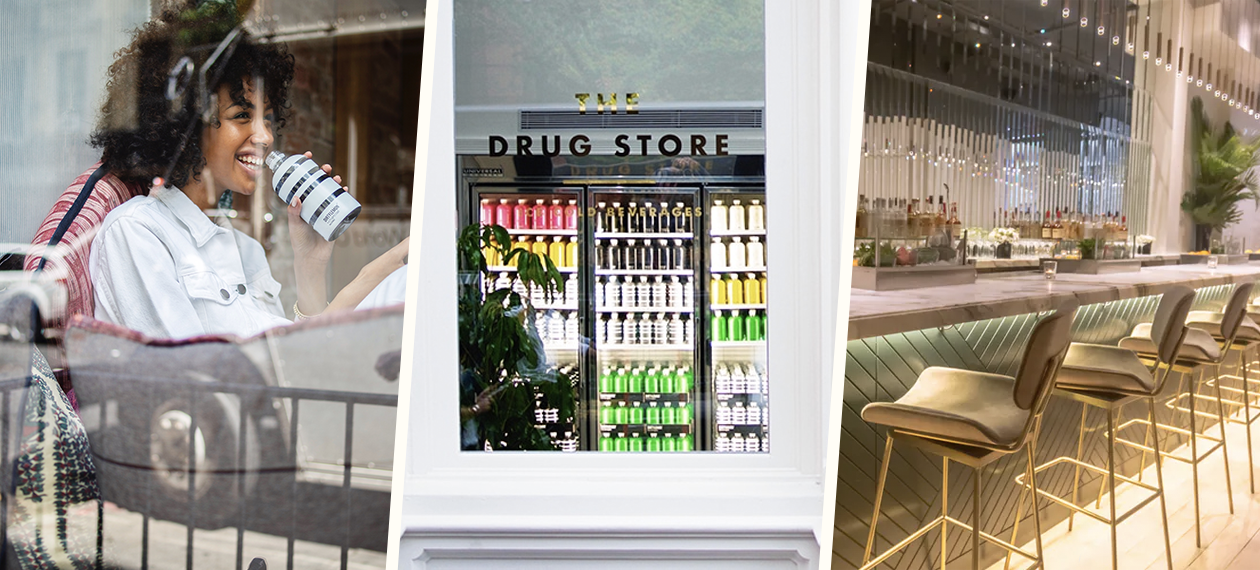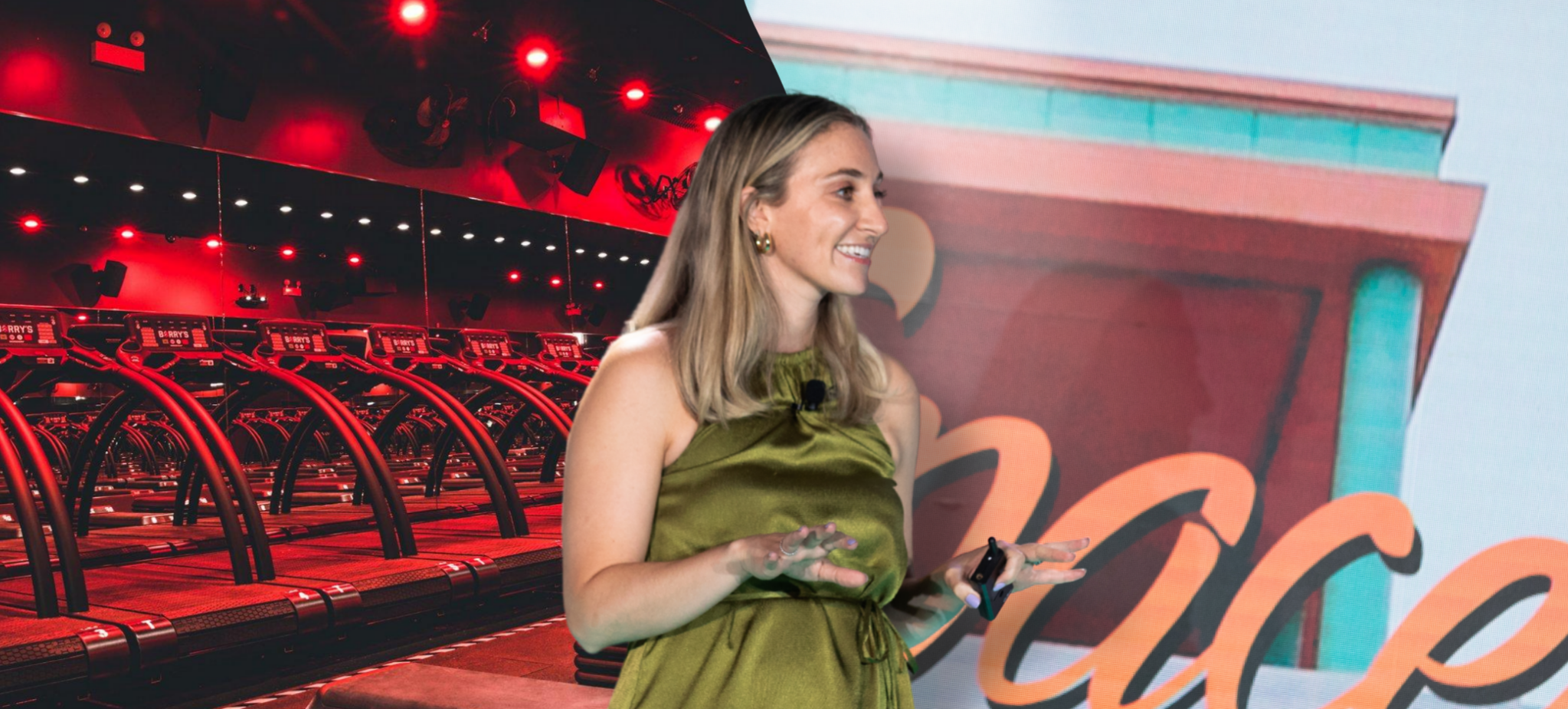Zak Normandin and his company, Iris Nova, have a bit of a… lofty goal: to be the future of retail and e-commerce.
So far, they’re off to a pretty solid start.
Launching in 2015 with the nonalcoholic beverage label, DIRTY LEMON, the brand had successfully created a direct-to-consumer business. Using social media and a proprietary text message-based platform which Normandin refers to as “conversational commerce,” Iris Nova gained mass appeal within the exploding wellness lifestyle market. In the four years following its debut, the company sold over two million bottles of the high-end product, gaining close to 200,000 regular repeat customers in the process. All of this, thanks to a somewhat unorthodox move to completely bypass traditional distribution channels.
Iris Nova’s ability to sling bottles of lemon water for $10 a pop offers proof that its unique way of getting products into people’s hands is an incredibly effective channel — one that retailers should perhaps be exploring further.
So in the midst of all this wild success in the digital realm… Why then, would Normandin decide to go and open a physical store?
Speaking at RetailSpaces, he not only explained why his "conversational commerce" platform works so well but also shed light on the company’s first foray into brick-and-mortar. As one might expect of the digital upstart, it’s an approach most other retailers are likely incapable of dreaming up.
How a Digital Native Does Radical Retail
Ninety percent of DIRTY LEMON's sales are achieved direct-to-consumer via text message communication with customers. The other 10 percent comes from brick-and-mortar retail locations in two very different New York neighborhoods, as well as at the 500 other retail stores that carry DIRTY LEMON.
“The new grocery store is on your phone"
Normandin spoke in depth about the very aggressive strategies Iris Nova has rolled out as a digital-based company. Among other things, they purchased the best chatbot in the world in 2018 and are incorporating other messaging platforms like WhatsApp in addition to SMS. They also aim to beat Amazon Prime on shipping speeds in every market. He said, “The new grocery store is on your phone," citing statistics supporting that most grocery shopping will soon be done primarily online, and DIRTY LEMON’s digital-first approach certainly positions it well for that future reality. And yet, despite all of that, they still launched a brick-and-mortar retail concept in 2018 called The Drug Store.
"We wanted to figure out a way to take the experience that we had developed for consumers online and bring it to more of an offline setting," said Normandin.
The Drug Store is basically a 100-square-foot walk-in cooler stocked with 1,000 bottles of DIRTY LEMON products. It's a grab-and-go, cashier-less store where anyone can walk in, grab a bottle, and walk right back out. DIRTY LEMON customers send a text to pay for their order, and new customers are prompted to sign up for an account. There is really nothing preventing people from taking what they want without paying for it, and yet, most do.
"We weren’t sure if it would work when we launched," Normandin said. "Everyone thought it was crazy, but there is less than a five percent theft rate in the store.
The first location in Tribeca is on a street with low foot traffic but in a neighborhood with a lot of DIRTY LEMON customers. People pop in to pick up products while going to and from work and the gym, resulting in 100 bottles being sold every day. When they opened the second Drug Store location in Hudson Yards, they weren't sure if being in more of a transient tourist space would mean a higher rate of theft. It didn't: that store has the same shrink rate of about five percent.
Normandin explained it rather simply: "Any store you go to you can go grab something out of the cooler and leave and no one would stop you. You just wait in line and pay for it because it's the right thing to do." 
Brick-and-Mortar is the New Advertising
In addition to being a walk-in cooler, The Drug Store has a cocktail bar hidden in the back accessible only to DIRTY LEMON's VIP members—those who order at least one case per month—where they host events and test out new beverage concepts.
In an interview with AdWeek, Normandin said The Drug Store is effectively taking the place of digital advertising, which is becoming prohibitively expensive for the kind of customer acquisition numbers they're seeking.
“Shifting our advertising spend from digital acquisition to these physical experiences is, we think, a much more effective way of connecting with consumers,” Normandin is quoted as saying.
In a behind-the-scenes interview with RetailSpaces after his talk, Normandin dove a little deeper into the role that he sees brick-and-mortar retail playing in the future of his digital-first company.
 |
"We think that retail plays a really big part in our ability to connect with consumers, but there's also a better way to engage with consumers on an ongoing basis beyond that initial purchase," he said. "We look at retail as a place to acquire customers and to be able to showcase the brand in real life, and then we look at our conversational commerce platform as a way for the consumer to be able to easily come back to the brand again and again without some of the friction points that exist in retail."
Since he gave this talk, Iris Nova has added four new early-stage startup beverage brands, all using the same SMS-based distribution platform and all of which will also soon be available at The Drug Store. Normandin mentioned that they plan on investing $100 million in brands over the next several years, which includes external brands like these first four as well as their own private label brands.
As for the future of retail, and how Iris Nova's "conversational commerce" will fit into it, Normandin said that he thinks it will be an important part of commerce, but it won't be the be-all, end-all.
"People still enjoy shopping. No one wants to only shop online. I think even the best direct-to-consumer brands have physical stores and experiences because people want to try their products; they want to touch the product and actually be able to see it before they commit to making the purchase longer-term," he said.

Posted by
Physical Retail Reimagined.
RetailSpaces is a community for store development and design innovators.
March 29-31, 2026 | San Antonio, TX
Learn More!








Comments